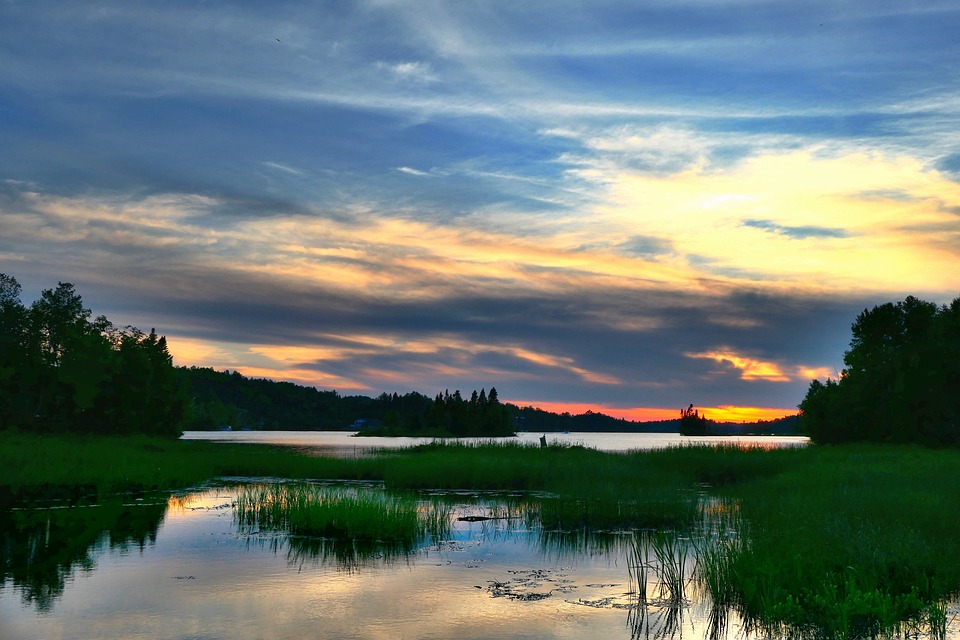What Climate Conditions Promote Chemical Weathering
Chemical weathering is a fundamental geological process that involves the breakdown of minerals and rocks through chemical reactions, significantly influencing Earth’s landscapes, soil formation, and nutrient cycling. Understanding the climate conditions that enhance chemical weathering is crucial for comprehending its role in global carbon cycles and long-term climate effects.
1. Basics of Chemical Weathering
Definition of Chemical Weathering
Chemical weathering refers to the transformation of minerals in rocks through chemical reactions, leading to their breakdown into smaller particles or new minerals. Key processes include:
– Hydrolysis: The reaction of minerals with water, often resulting in clay formation.
– Oxidation: The reaction of minerals with oxygen, commonly affecting iron-rich minerals.
– Carbonation: The dissolution of minerals in carbonic acid formed from atmospheric CO2 and rainwater.
– Dissolution: The process where soluble minerals dissolve completely in water.
Importance of Chemical Weathering in Earth’s Systems
Chemical weathering plays a vital role in:
– Soil formation by breaking down parent rock material.
– Nutrient cycling, making essential elements available for biological processes.
– Influencing global carbon cycles by sequestering carbon dioxide through mineral reactions.
2. Climate Factors That Enhance Chemical Weathering
Temperature
Higher temperatures accelerate chemical reactions, increasing the rate of weathering. Regions with consistently warm climates experience faster weathering due to enhanced reaction kinetics.
Precipitation
Water is essential for chemical weathering as it facilitates various reactions. Areas with high rainfall see increased rates of weathering because water aids processes like hydrolysis and carbonation.
Humidity and Atmospheric Moisture
High humidity levels promote chemical reactions by maintaining moisture availability, which is crucial for processes like mineral dissolution and oxidation.
Seasonal Variations and Weathering
Climates with distinct wet-dry cycles can impact weathering rates. For example, alternating periods of moisture and dryness can enhance the effectiveness of weathering processes through repeated wetting and drying cycles.
3. Examples of Chemical Weathering in Various Climates
Tropical Rainforests
In tropical rainforests, high temperatures and abundant rainfall create optimal conditions for rapid chemical weathering. This environment leads to the formation of highly weathered soils rich in iron and aluminum oxides due to intense leaching and organic acid production from vegetation.
Temperate Climates
Temperate regions experience moderate temperatures and precipitation, resulting in steady rates of chemical weathering. The combination of seasonal rainfall and temperature variations supports ongoing weathering processes.
Arid and Polar Regions
In contrast, arid regions have limited moisture, resulting in slower chemical weathering rates. Similarly, polar regions experience minimal chemical weathering due to cold temperatures and low precipitation levels.
4. The Role of Vegetation and Soil Chemistry
Vegetation’s Influence on Chemical Weathering
Dense vegetation contributes organic acids that enhance mineral breakdown. Areas with rich plant life tend to exhibit higher rates of weathering compared to sparsely vegetated regions due to the additional acidity introduced into the soil.
Soil Composition and Chemical Reactions
The type of soil also affects weathering rates; acidic soils promote faster weathering processes compared to neutral or alkaline soils. For instance, soils rich in organic matter can significantly accelerate chemical reactions due to their acidity.
FAQs: Climate and Chemical Weathering
– Why does warm temperature promote chemical weathering?
Warm temperatures increase reaction rates, speeding up the breakdown of minerals.
– How does rainfall affect chemical weathering?
Rain provides necessary water for reactions like hydrolysis, intensifying weathering in wetter climates.
– Is chemical weathering possible in dry climates?
Yes, but it occurs at a much slower rate due to limited moisture availability.
– Why is chemical weathering faster in tropical climates?
High temperatures and abundant rainfall create ideal conditions for rapid chemical reactions.
– Do polar regions experience chemical weathering?
Very minimally; cold temperatures and limited water restrict most chemical reactions.
Conclusion
Key climate factors such as temperature, moisture availability, and vegetation significantly influence the rates of chemical weathering. Understanding these conditions is essential for grasping how chemical weathering shapes Earth’s surface and impacts ecological systems over time.

Kyle Whyte is a notable scholar and professor at the University of Michigan, holding positions such as the George Willis Pack Professor in the School for Environment and Sustainability and Professor of Philosophy. Specializing in environmental justice, his work critically examines climate policy and Indigenous peoples’ ethics, emphasizing the nexus between cooperative scientific endeavors and Indigenous justice. As an enrolled Citizen Potawatomi Nation member, he brings a vital perspective to his roles as a U.S. Science Envoy and member of the White House Environmental Justice Advisory Council. His influential research is supported by various prestigious organizations including the National Science Foundation, and disseminated through publications in high-impact journals. Kyle actively contributes to global Indigenous research methodologies and education, with affiliations to numerous institutes and societies dedicated to traditional knowledge and sustainability. Recognized for his academic and community engagement, Kyle has earned multiple awards and served in various visiting professorships. His efforts extend to leadership positions on boards and committees focused on environmental justice nationwide.
